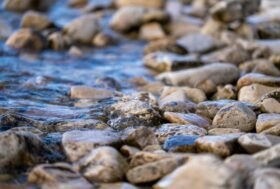Designing an effective Key Stage 5 programme on education and international development

Jonathan Beale, Researcher-in-Residence, Eton College, UK
How can we design an educational programme on education and international development that is maximally co-beneficial for the student participants and for those receiving education in the area where development is focused? In an attempt to address these questions, in 2018 I designed a project-based learning programme in education and international development for Key Stage 5 students in the UK, in collaboration with the non-governmental organisation (NGO) Redearth Education, which provides teacher and leadership training at rural government primary schools in Uganda, mostly in Masindi. They focus on the least-resourced schools and currently train approximately 1,200 teachers across 130 schools, which educate around 60,000 pupils. This programme was piloted at Queen Anne’s School, UK in the academic year 2018–19, and is now in its second year. This article outlines and offers reflections on the programme, which it is hoped could be useful for teachers interested in offering an international social action programme.
The aim of the programme for the Key Stage 5 student participants was to develop some of the character virtues that social action can most help to foster. These were primarily the civic virtues of service, volunteering and global citizenship. Additionally, the programme sought to foster performance virtues such as teamwork and independent learning, and intellectual virtues such as lateral thinking.
While Key Stage 5 students are increasingly encouraged to engage in social action during and after their time at school, there are few educational programmes that include social action as part of the programme’s structure. A programme that does is the International Baccalaureate (IB) Diploma, one of the required components for which is ‘creativity, activity, service’ (CAS), which ‘requires students to undertake an unpaid and voluntary exchange’ (International Baccalaureate Organisation, 2019). The motivation behind this is that such an exchange provides students with the opportunity to apply their knowledge and skills to community service in a way that complements their academic study. IB research suggests that this exchange develops skills such as civic engagement and project management, as well as supporting students’ personal and social development. Their research studies on former IB students suggest that the exchange project helps students to ‘develop an ethic of service’, become ‘more caring, open-minded, and reflective’, and develop ‘greater levels of self-confidence and maturity’ (International Baccalaureate Organisation, 2019). These skills and character traits fall under all four of the types of virtues established in the Jubilee Centre for Character and Virtues’ framework for character education in schools: civic, performance, intellectual and moral virtues (Jubilee Centre, 2017). The ultimate aim of the IB exchange reflects the IB’s aim in general: developing ‘students who will make a meaningful contribution to the world, both during and after their education’ (International Baccalaureate Organisation, 2019). The programme outlined in this articled adopted similar aims to the IB’s CAS component in its approach towards character education: by encouraging students to participate in social action, the programme sought to develop character skills, such as the civic virtues of service, volunteering and global citizenship.
Students completed group projects via project-based learning (PBL). PBL is a student-centred, dynamic pedagogical method, where students actively explore real-world problems and challenges, and the teacher inputs little more than guidance. The central aim of PBL is for students to gain a deeper level of knowledge of a particular area by actively exploring real-world challenges and problems.
This programme adopted PBL for four reasons. First, the programme shared the central aim of PBL in its emphasis on exploring real-world problems and challenges. Second, the programme could not be very time-intensive, given the existing commitments of the Key Stage 5 students. Additional lessons could not be timetabled for the programme and homework could not be set. PBL provided a way for students to complete their group projects independently. Students were encouraged to see me with questions during allocated office hours throughout the project’s duration; attendance at these was optional. Third, the programme aimed to support the development of one of the most important skills that students develop during Key Stage 5: independent learning. This can be better developed in the context of a group projects programme with minimal direct instructionA method of instruction in which concepts or skills are taught using explicit teaching techniques, such as demonstrations or lectures, and are practised until fully understood by each student beyond guidance at the start and at intervals throughout the duration of the programme, which was provided. Fourth, another skill that the programme aimed to develop was the ability to work successfully as part of a team, which can be better fostered through the minimal level of direct instruction provided, allowing students to focus more on figuring out how to solve problems and complete their project among themselves.
Groups submitted progress reports each half-term, summarising the progress made; an outline for the next half-term’s work, including tasks to be completed and a timescale for completion; problems encountered and proposed solutions; questions that the group wished to raise; and changes that the group foresaw the course of the project taking during completion. Reports influenced the final mark as they related to areas of the assessment criteria (e.g. teamwork and time-management). The programme had a bespoke mark scheme covering 10 areas: research, evidence, quality of argument, structure, implementation, teamwork, time-management, presentation, handover and form. Groups presented their projects in May 2019, to an audience that included Redearth’s directors.
The potential extent to which any viable contribution towards international development could be offered – e.g. a project offering a resource that Redearth might propose for consideration to a school with which they work – was minimal, given the level of education of the Key Stage 5 students completing the projects, and given their lack of experience in the context and in international development. Sample projects were designed with these limitations in mind; the projects aimed to be ambitious but realistic.
For the programme to have the potential to be maximally beneficial for any Ugandan schools, the projects needed to focus on areas of importance to those schools. Students were given 11 sample projects from which they could choose. Several of the sample projects focused on areas that had been identified as being of importance to schools, by the directors and by the headteachers and the Redearth staff with whom I had discussions in Masindi during summer 2018. The projects covered areas including school infrastructure (e.g. stocking a school library); teaching and learning resources (e.g. devising a method for creating resources for science lessons); and activities involving pupils in Uganda (e.g. an art exhibition of pupils’ work). All projects had to demonstrate how the project could potentially be implemented sustainably, using readily available resources at low cost. Alternatively, students could design their own project. The two most important areas identified were providing food for pupils in schools and providing a means of making teaching and learning resources for science lessons using readily available resources at low cost. Two of the sample projects focused on these.
Where possible, project overviews included examples of methods used by schools in Masindi to address areas with which some of the projects were concerned. For example, a sample project aimed to devise a method of growing and cultivating a crop at a school at low cost, to support the provision of meals for pupils and staff. Biize School and Bulima School in Masindi have planted crops, and pupils are involved in their cultivation; these are used as educational resources and to support the provision of meals. Kinyara School in Masindi invites members of the community to come in and sell food and refreshments.
Each project outline covered four sections: aim, overview, requirements and questions that the project should address. Projects were expected to identify ways in which their project could be continued by a new group next year and how the current group would manage the project in its second year, as peer mentors. Questions concerning longevity expected to be addressed included ‘How could the project be developed in its second year?’ and ‘What challenges will the new group face?’
Students were given recommendations on initial research sources, including articles from relevant UN organ websites (e.g. UNICEF and UNESCO Uganda), NGOs and research centres (e.g. Redearth Education, the Uganda Research Institute, the Research and Education Network for Uganda and SALVE International), and articles on education in Uganda (e.g. Ssentanda and Nakayiza, 2015a and 2015b).
Eleven students, working in two groups, undertook projects. The first group completed the sample project that involved planning an exhibition of Ugandan pupils’ paintings. The second group proposed their own project, which aimed to design a sustainable, low-cost renewable energy source, using biofuel.
Both groups demonstrated impressive skills in teamwork, initiative, creativity, research, independent study, time-management and project management. Particularly impressive was the degree to which groups adapted their projects to problems encountered during completion. For example, the group working on an energy resource tried to design a resource that could provide electricity by burning algae oil. They discovered through trials in the school’s chemistry department that they could not, however, use algae as an energy source in the desired way, so they modified their project to design a method of using another form of biofuel.
The programme aimed to engage students with the context as much as possible. The directors of Redearth gave lectures during two visits over the year and were involved in the programme from its design through to the culmination of the pilot year, where the students participating in the projects gave presentations. The Head of History at Queen Anne’s at the time gave a lecture on the history of Uganda and of colonialism in Africa. We ran a two-week trip to Uganda in July 2019, which was open to sixth formers across the United Westminster and Grey Coat Foundation, which comprises three independent and two state schools. Among the 15 students who attended, two participated in projects (one of those two students recently returned from volunteering with Redearth for four months during her gap year). For 10 days of the trip, students volunteered with two schools in Masindi, contributing in areas where they had skills to share, such as doing sports and dance activities with pupils. The students were divided into two groups and each group was placed with a school in Masindi for a week. Students received a language lesson on the local language, Runyoro-Rutooro, from the directors before the trip and another from native speakers of the language in Masindi. They received lectures on the history and culture of Masindi and on NGO work in Uganda from Redearth staff in Masindi, most of whom had grown up and been schooled in Masindi.
Minor revisions were made to the programme before its second year. These included revising existing sample project outlines and adding new ones, based on discussions with headteachers and Redearth staff in Masindi during summer 2019. I did not make major revisions because the programme’s format worked successfully, and I would like to run the existing programme for at least three years before making major revisions. However, I intend to make at least one major revision before the programme enters its third year: to relate the aims of the programme directly and explicitly to some of the UN’s Sustainable Development Goals, and to develop students’ knowledge and understanding of these, as well as students’ awareness of their importance.
Ideally, this programme would culminate with all of the student participants volunteering in Masindi after the completion of their projects, as this is by far the most effective way to develop students’ knowledge and understanding of the context. This would also significantly support the peer mentoring side of the programme, with those students who have completed the programme and volunteered in Masindi acting as peer mentors to those taking the programme the following year. But this trip could not be made compulsory. Students who completed the programme or went to Masindi last year were invited to be involved as peer mentors in the programme’s second year. In the launch presentation in September 2019 for the programme’s second year, students who visited Masindi last summer gave presentations on their experiences and have been available to meet with students undertaking projects this year to offer advice.
The programme document is available on request; please email me if you would like a copy: j.beale@etoncollege.org.uk.
References
International Baccalaureate Organisation (2019) Community service. Available at:
www.ibo.org/programmes/diploma-programme/what-is-the-dp/community-service (accessed 7 April 2020).
Jubilee Centre for Character and Virtues (2017) Framework for character education in schools. Available at: www.jubileecentre.ac.uk/userfiles/jubileecentre/pdf/character-education/Framework%20for%20Character%20Education.pdf (accessed 7 April 2020).
Redearth Education: http://redeartheducation.co.uk
Research and Education Network for Uganda: https://renu.ac.ug, www.schoolnetuganda.com/university/research-education-network-uganda-renu
SALVE International: www.salveinternational.org/salve-explained/education-in-uganda
Ssentanda M and Nakayiza J (2015a) English rules in Uganda, but local languages shouldn’t be sidelined. The Conversation, 5 November, 15. Available at: http://theconversation.com/english-rules-in-uganda-but-local-languages-shouldnt-be-sidelined-49381 (accessed 7 April 2020).
Ssentanda M and Nakayiza J (2015b) Uganda’s private schools must stop snubbing language learning policy. The Conversation, 7 September, 15. Available at:
https://theconversation.com/ugandas-private-schools-must-stop-snubbing-language-learning-policy-46819 (accessed 7 April 2020).
Uganda Research Institute: http://ugandaresearchinstitute.org/about-uri
UNESCO Uganda: http://uis.unesco.org/country/UG, https://en.unesco.org/countries/uganda
UNICEF Uganda: www.unicef.org/uganda
UN Sustainable Development Goals: www.un.org/sustainabledevelopment/sustainable-development-goals










